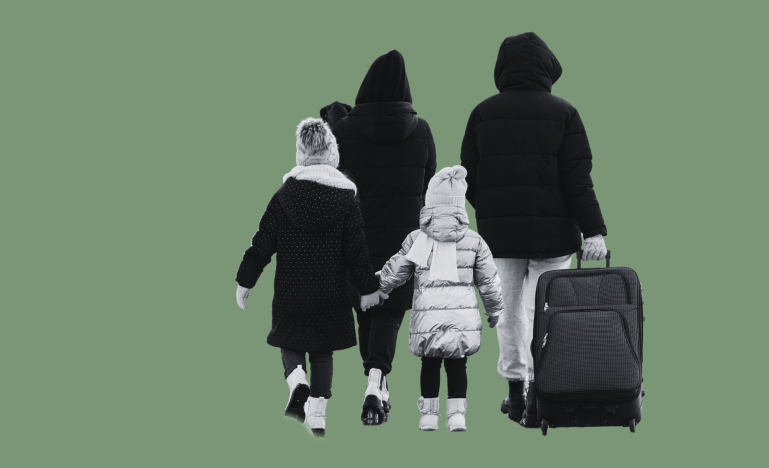Justice delayed for asylum seekers
SCC ruling on Safe Third Country Agreement raises concerns over access to justice for refugee claimants.

The recent decision by the Supreme Court of Canada to uphold the Safe Third Country Agreement has sparked doubt about the possibility of providing meaningful remedies to asylum seekers who are sent back to the United States.
"This is becoming an access to justice issue," says Toronto immigration lawyer Mario Bellissimo, reacting to last week's ruling that the STCA between Canada and the U.S. does not violate the s. 7 rights of refugee claimants. His concern is that the case could still drag on for years, as it was thrown back to the Federal Court for analysis on an alternative claim regarding equality rights under s. 15.
The course of litigation is proving to be tortuous indeed, and increasingly unmoored from reality on the ground. In 2020, the Federal Court ruled in favour of advocacy groups behind the challenge, namely the Canadian Council for Refugees, Amnesty International and the Canadian Council of Churches. It determined that enforcing the STCA infringes upon the right to life, liberty, and security of persons under s. 7 of the Charter, due to harsh U.S. detention practices. But the court did not address the alternative claim made under s 15, which highlighted the inadequate protection provided to women who fear gender-based persecution, including domestic or sexual violence, within the U.S. refugee claims system.
The STCA, in effect since 2004, lists factors for the government to consider in designating a country as safe for refugees. It also imposes a review process to ensure those conditions continue to be met.
Then in 2021, the Federal Court of Appeal set aside that decision when it allowed the appeal by the Canadian government, primarily on the grounds that the refugee claimants improperly targeted the regulation designating the U.S. as a safe country rather than the government's administrative conduct in maintaining that designation.
Ultimately, the Supreme Court agreed that an analysis of s. 159.3 of the Immigration and Refugee Protection Regulations engages issues surrounding s.7, but it also held that the STCA contains safety valves whereby "claimants can be exempted from return." It's possible, the court recognized, that administrative decision-makers may not always apply these safety measures appropriately. However, it held that claimants can still seek Charter relief based on individual circumstances.
Noting the concerns raised by interveners regarding a perceived pattern of courts ignoring s. 15 claims in challenges based on multiple Charter rights, Justice Nicholas Kasirer confirmed that " claims based on s. 15 are not secondary issues only to be reached after all other issues are considered.” There is no “hierarchy of rights in which s. 15 occupies a lower tier."
"It would be great to get a decision on s. 15," says Bellissimo about the case returning to the Federal Court. "But it means going up the litigation ladder again"—hardly a practical solution for refugee applicants whose lives hang in the balance.
Justice Kasirer acknowledged as much in his reasons. "I would not fault the Federal Court judge here for exercising judicial restraint and not deciding the s. 15 claim," he wrote, recognizing some merit to avoiding "unnecessary constitutional pronouncements." Still, that restraint "must be weighed against other factors, such as the possibility of an appeal and fairness to the parties," he concluded.
Making matters stranger, the STCA initially contained a loophole that allowed refugees to make asylum claims at unofficial ports of entry. In March 2023, a deal struck between Canada and the U.S. extended the agreement across the entire border. The Supreme Court's ruling on the STCA therefore comes at a time when the "on-the-ground reality" is "vastly different" than when the case was launched in 2017, days Bellissimo. "When all of this gets filtered down to the public, I don't think it's a good look," he says about how the case impacts perceptions of the treaty.
Even so, Bellissimo makes sure to emphasize some positive aspects of the top court's ruling. One of the most significant is the recognition that there should not be a ranking of rights. "That's an immense development," he says.
Second, by acknowledging that administrative decision-makers may not always apply the necessary safeguards correctly, it suggests a potential shift in the court's perspective regarding the effectiveness of curative mechanisms for asylum seekers.
Lastly, there are exceptions to the application of the STCA—for instance, if a refugee claimant has a family member in Canada or if they are a child under 18 without their parents or legal guardian. Now that the court has affirmed the significance of equality rights on par with other Charter rights, Bellissimo expresses his hope that the government will contemplate broadening the exemption to include individuals who fear persecution based on gender.
But that is also likely to take time. It then becomes a political issue involving delicate discussions with the U.S. administration, he says. "These exemptions can be negotiated for years.”


